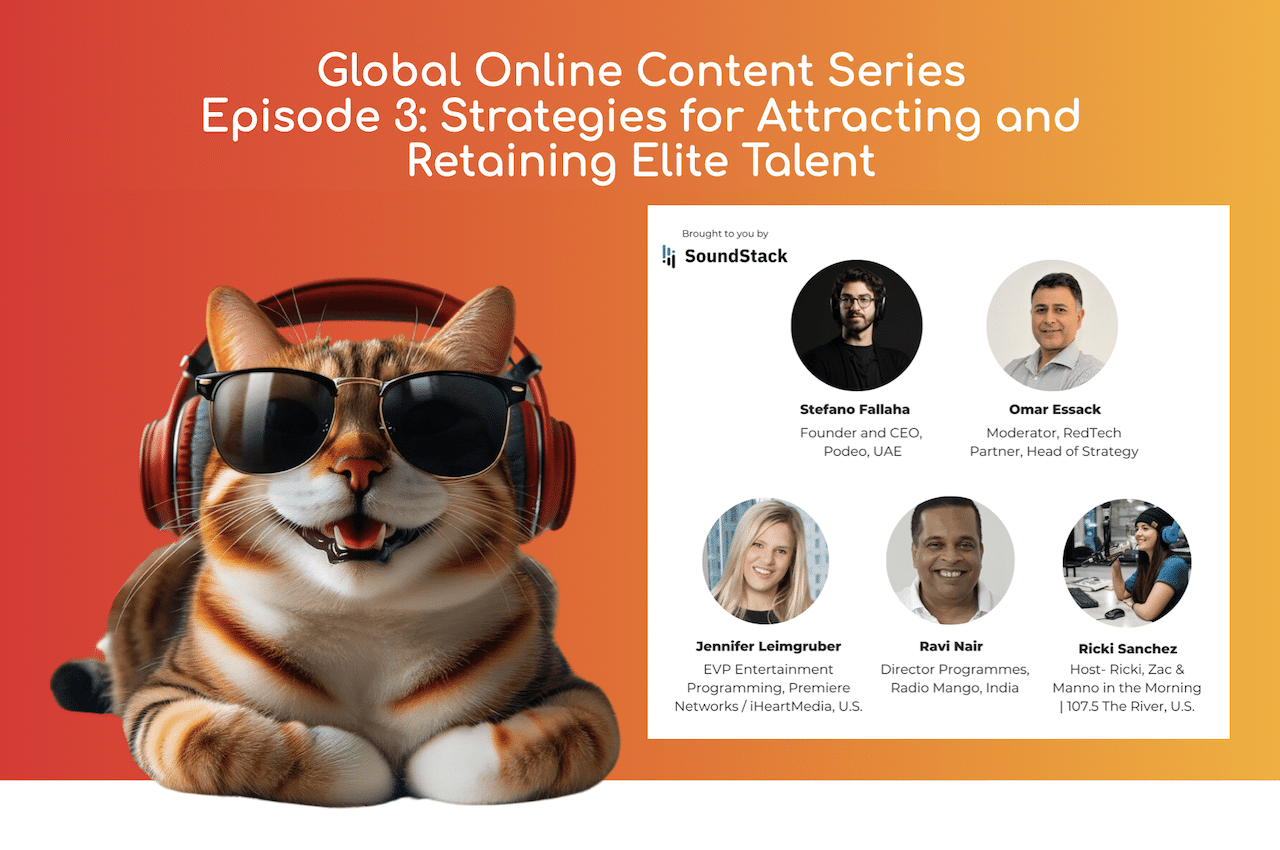The third Global Online Content Series episode focused on an area of audio broadcasting that AI proponents may argue should no longer be an issue: attracting and retaining talent. If AI can generate content and voices to communicate that content, why need real people? The counter to that carries an inarguable point: AI can generate content, but because it’s not human, it cannot understand how to connect to another human — that’s the measure of good talent.
But times have changed, the radio landscape has evolved, and it’s no longer just about live radio. Listeners are now engaging across multiple channels, both live and on demand. So how do audio broadcasters attract the talent — especially new and younger talent — to connect with those listeners and, importantly, retain them?
The panel
Omar Essack, head of strategy at RedTech International thanked the sponsors Soundstack and introduced the panel: Ricki Sanchez, the young morning host on 107.5 The River in Nashville, Tennessee, in the United States; Ravi Nair, the director of programs for Radio Mango, a major Indian radio station based in Kochi; Jennifer Leimgruber, executive vice president of programming at U.S.-based Premiere Networks, a subsidiary of iHeartMedia; and Stefano Fallaha, CEO and co-founder of Podeo, the Arab World’s largest podcasting platform.
It emerged that radio is still attractive, even with so much competition for attention. The secret is to view that competition as an opportunity — radio stations need to be experts and engaged in social media and other platforms and show that the scale that radio reaches is so much bigger than podcasting. Be everywhere — in every form the audience wants to consume. Importantly, if, especially younger talent, they should be encouraged to explore those various avenues. As Fallaha said, “We need to follow the audio-creator economy — audio creators want to be everywhere, including radio.”
Corporate versus creativity?
This may clash with a corporate culture that wants to control content creation as much as possible. Nair hit the nail on the head, saying that younger talent coming through don’t want the rigid employment structures of the corporate world. They want to exercise their creativity in different ways and to experiment. The issue is whether commercial radio has formatted itself so tightly that it’s backed itself into a bit of a corner in that regard, and that, especially younger talent are saying, “No, I don’t want to be there.”
Leimgruber pointed out that as long as commercial radio is an advertising-driven medium, those adverts and the formatting around them keep the lights on. Sanchez disagreed, saying that corporatization has ruined radio and stations have become risk-averse, to the detriment of radio.
This session pitched radio against podcasting, realities against aspirations, and, at times, management against talent. But it also found a common voice in the middle ground and suggested opportunities for those who aspire to create and share compelling audio for a fluid audience and generate significant revenue in the process.
The alternative is AI.
In case you missed it, you can watch this session here:
These stories might interest you
RedTech Online Content Series outlines a vision for change

